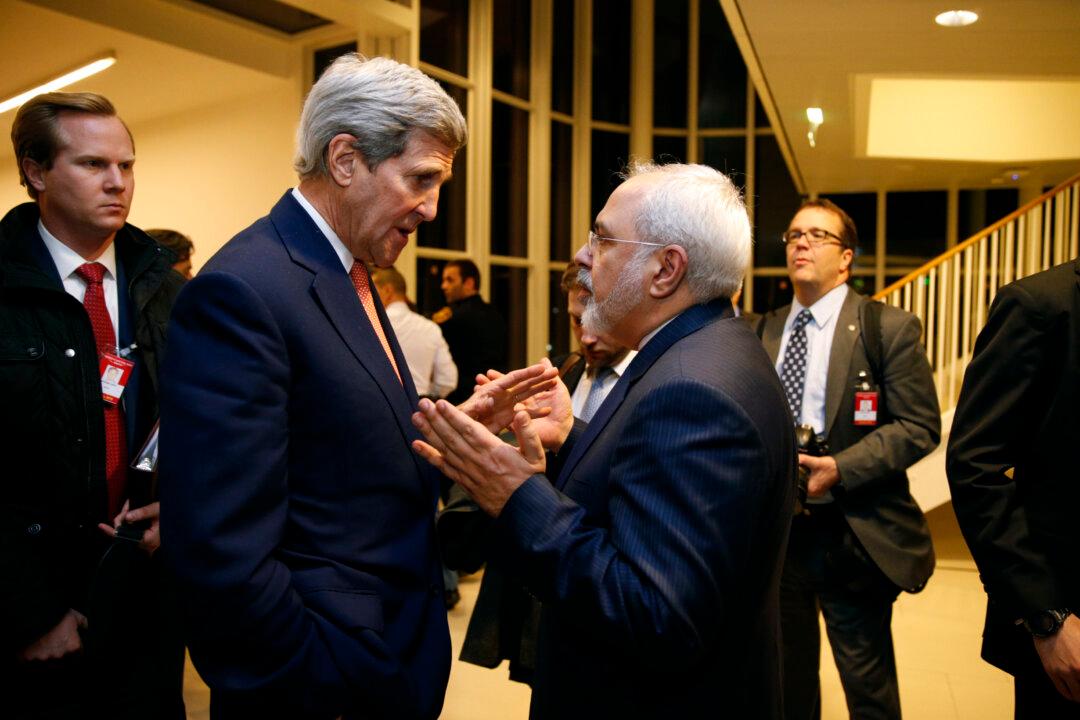WASHINGTON—The Iran nuclear accord is fragile at its one-year anniversary.
Upcoming elections in the U.S. and Iran could yield new leaders determined to derail the deal. The Mideast’s wars pit U.S. and Iranian proxies in conflict, with risks of escalation. Iran’s ballistic missiles are threatening the Middle East, raising pressure on the United States to respond forcefully.
But for now, the seven-nation nuclear pact is holding. Washington and Tehran are expanding cooperation beyond any level imaginable back when the Iranians were edging closer to nuclear weapons capability. And Boeing’s recent announcement of a multibillion-dollar plane deal with Iran Air suggests some of the agreement’s early problems may be working out.
“It really wasn’t long ago that we saw a rapidly expanding nuclear program in Iran, only months away from having enough weapons-grade uranium to build 10 to 12 nuclear weapons, and we were on the cusp of confrontation,” Secretary of State John Kerry said recently.
“We have changed the strategic equation.”
A year ago, on July 14, 2015, the United States, six other world powers and Iran finalized almost two years of negotiations on the Joint Comprehensive Plan of Action. The pact outlined what Tehran had to do to pull back its nuclear program from the brink of weapons-making capacity. It spelled out the West’s obligation to end many of the financial, trade and oil sanctions that had battered Iran’s economy.






